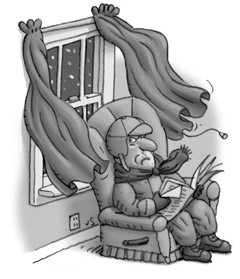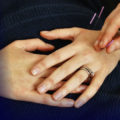
Did you know you have ‘wind points’ at the back of your neck and at the base of your skull? This is usually not common knowledge. However, according to Traditional Chinese medicine these ‘wind points’ are commonly affected by over-exposure to cold and wind, and this can be the precursor to catching the common cold. ‘Wind points’ represent a gateway to the body which allow cold to enter into the muscle layer. Once cold enters, it gets trapped and can cause symptoms such as headache, stiff neck, shoulder pain, chills, sore throat and sneezes.
Prevention: the best treatment
Heed the climate
To protect your “wind points”, always rug up and wear a scarf or a collar when venturing out into a chilly or windy climate.
Mind the draft
Many people catch colds from sitting in drafts. Make sure you keep windows shut when sleeping, stay out of doorways in cafes and restaurants if the breeze is whipping through and avoid “the blow” from the aircon; it’s not worth getting a sore throat or a thumping headache.
Rug up after running out
It’s common to experience an attack of “wind cold” after exercise. When we work hard physically the body generates heat, which will protect us from the cold, and the pores open to release the heat. However, once you stop and cool down you’re vulnerable to “cold” entering; particularly if your skin or clothes are wet with sweat. Immediately after exercise, shower or put some dry clothes on – preferably shower for the sake of your friends and family!
Lie low if your Qi has taken a blow
Although it’s common knowledge that our immune system becomes compromised when we’re run down and over tired, we don’t always listen to our bodies. In Chinese medicine we call the immune system our ‘protective Qi’. When our protective Qi is weakened it can no longer protect us from the elements (and the nasty viruses that ‘blow’ around). Listen to your body! If you feel worn out take it a little easier and get some rest.
What to do once the cold has taken hold
“Wind cold” is what we in Traditional Chinese Medicine call an external pathogen, more commonly referred to as the common cold or a ‘bug’. If the symptoms of a cold are not treated quickly and correctly the pathogen can travel deeper into the body and cause problems such as indigestion, constipation, restless sleep or a persisting cough.
Conventional medicine can’t offer much in terms of treatment of a viral infection such as the common cold or flu other than rest and paracetamol for symptom relief. Luckily Chinese Medicine can more actively help your body get rid of the infection and speed up recovery.
The trick is to act promptly when you start feeling the first nasty symptoms of a common cold. An acupuncture or cupping session will help eliminate the ‘bug’. Chinese herbs can help expel the unwanted pathogen.
We recommend always having a Chinese medicine mix such as Yin Qiao San or Sang Ju Yin in the cupboard. These popular mixes, which come in pill form, can be really helpful if you start taking them as soon as you feel the first little niggle of a cold coming on. They can ‘knock it on the head’, help reduce the severity of the symptoms and get you feeling better quicker. They can be purchased at our clinic.
A great home remedy for preventing the common cold from taking hold is ginger and spring onion tea:
Ginger and spring onion tea
- Slice the white parts of five to six spring onions.
- Slice four to five ten cent piece sizes of ginger.
- Add these to two and half cups of water with one teaspoon of brown sugar or honey.
- Bring to the boil then simmer for five minutes.
- Drink as a tea.
The ginger and onion have a slight diaphoretic action; this means they will cause a slight sweat. The best thing to do is drink the tea as soon as you feel a cold coming on and rug up and go to bed. When you wake the symptoms could be gone…if not, that’s when you should ring Nick or Christina for something stronger 🙂







